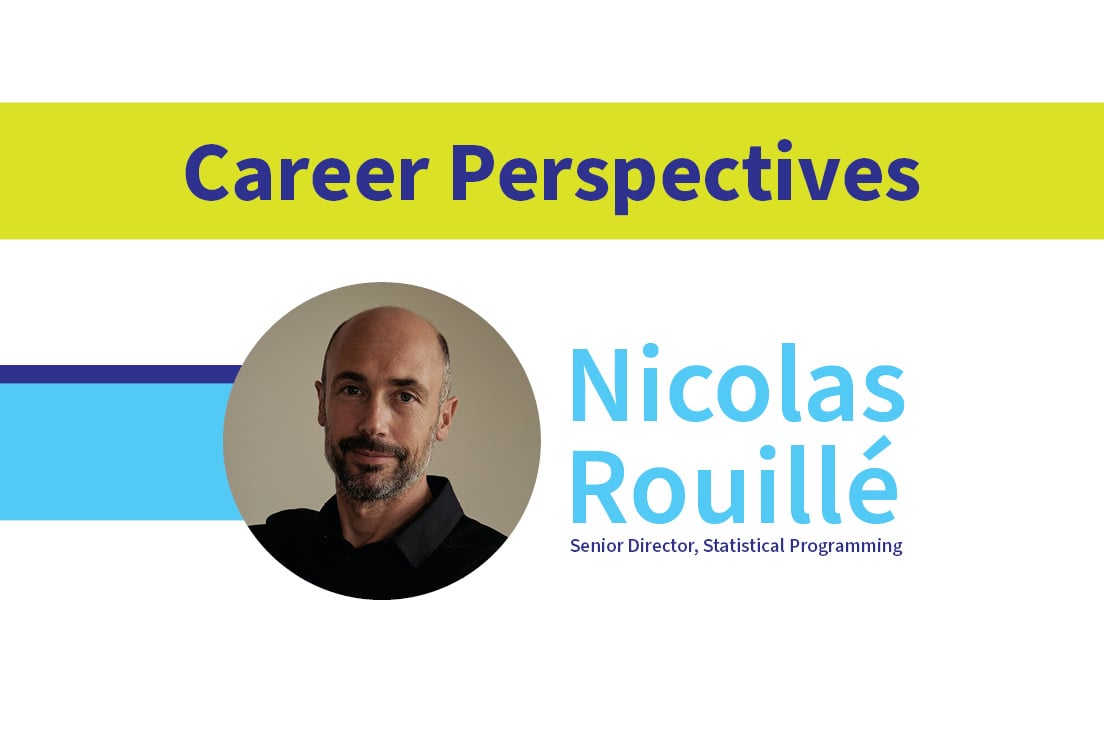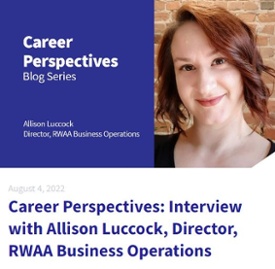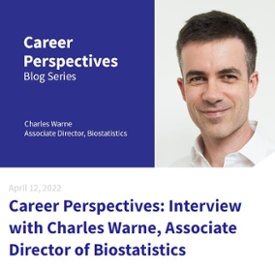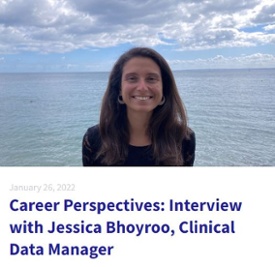Career Perspectives: A Conversation with Nicolas Rouillé


In this edition of the Career Perspectives series, I interview Nicolas Rouillé, Senior Director, Statistical Programming. Nicolas played a key role in the development of an internal tool and improvement of processes that impact speed, efficiency, and quality through standardization and automation of Cytel’s Project Based Services (PBS) and Data Monitoring Committee (DMC) delivery. In this interview, we learn about his professional journey, Cytel’s integrated project management approach, and the necessary qualifications to work with Cytel as a statistical programmer.
Can you give us a little background on your career and your journey so far?
I started my career twenty years ago as a biostatistician in the pharmaceutical industry. I worked in a network of independent consultants where I was mentored by prominent experts who helped me build a great foundation for my career. I later joined Merck-Serono as a statistical programmer based in Geneva, Switzerland, and then Novartis in Basel, Switzerland.
My journey at Cytel started in early 2013, where I was lucky enough to join a great and inspiring team of colleagues to set up and expand the Cytel Geneva Office, the first footprint of Cytel operations in Europe. Setting up the European operations was quite exciting as it included hands-on work and direct contributions to the opening of new offices in Basel and Paris. As a young manager, I had the opportunity to be involved in expanding our teams by way of recruiting and training new members, establishing company processes, and then developing standard tools. The whole team shared an entrepreneurial/start-up mindset and was devoted to a common goal, which was awesome!
What is your role at Cytel and what do you like best about it?
I am a Senior Director, Statistical Programming, for Cytel’s PBS business unit, in Europe. I supervise statistical programming for the “Analysis” projects, i.e., the projects where we need to create study analysis datasets and summary outputs for the scope of interim and final analyses. This includes preparation of submission-ready packages for the health authorities. My role involves line management responsibilities and the oversight of projects in terms of quality, timelines, and budget.
For me, an important aspect of this role is that it reveals its best rewards only after a long-term investment. This is particularly relevant with regards to the development of team leaders. It is a gratifying experience to watch individuals you had hired grow and develop into senior and management roles.
My position at Cytel also gives me plenty of room for autonomy in decisions and space for creativity in solving problems.

Can you speak to Cytel’s integrated project management approach, which seeks to integrate delivery between data managers, biostatisticians, and programmers? How does this approach benefit our clients?
Two primary examples of the automation of cross-functional delivery within PBS are the development of a CDASH-compliant eCRF library and the creation of two internal applications. In case of the eCRF library, the eCRFs were developed in accordance with CDASH standards. The SDTM team at Cytel then built a program for Data Managers that assesses each eCRF book’s compliance with CDASH standards. When eCRFs comply with CDASH standards to a high degree, the corresponding SDTM mapping can be automated, enabled by compliance with CDASH standards. We have found that the typical case book generated by Cytel, in accordance with our client requirements, is typically 60–70% compliant with CDASH standards. The Cytel project teams benefit from our ability to quantify industry-standard compliance. It allows them to encourage our clients to adopt these standards to enable efficient clinical trial delivery, inclusive of downstream CDISC compliance for analysis data sets, which is expected for sponsor data submissions to regulatory authorities.
Similarly, a tool was developed recently within Biostatistics to overcome the lack of compliance with Cytel standards in the creation of mock shells. The collaboration between Cytel Biostatistics and Programming results in more efficient and high-quality delivery.
Can you share an example/project to highlight how we push boundaries in value-add delivery?
We have many examples of Data Monitoring Committee projects where all the standard outputs were produced in less than twenty hours (or even ten hours, in some cases!). However, I consider the best way to leverage the Cytel tool is by making maximum use of the saved time. For example, you can proceed to advanced quality controls or cross-checks against other outputs, keep the highest level of attention to detail, and review the computational methods of complex derivations.
What combination of knowledge, skills, and technical competencies are required to work as a statistical programmer at Cytel?
Technical skills are important for the first round of interviews. We look at the candidate’s CDISC knowledge, proficiency in statistical programming languages (SAS, R), and knowledge and experience in clinical data.
At Cytel, we value the appetite to learn, enthusiasm for work, courage and discipline, and a strong work ethic. For senior roles, we consider the experience the individuals have as lead programmers, such as the studies they have led, how they optimized resource assignments, how they managed internal and external customers, their awareness to budget related topics, and so on.
What excites you about working in this field and at Cytel?
Cytel is an exciting place to work for anyone who is seeking the opportunity to make an impact on their work environment, build processes or tools, develop great relationships across and within teams, and participate in various company initiatives. It may sound challenging, but I appreciate how our efficiency at work can be directly measured by the company results, some metrics do not lie.
Ultimately, the feedback received from our clients is my main driving force, pushing us to excellence.

What are your main interests outside of work?
Spending time with my family comes first. I have two young children, a nine-year-old and a seven-year-old, and they are relatively demanding as anyone can guess. Fortunately, we have an abundance of activities and attractions for kids in Geneva and its surroundings.
I also enjoy some outdoors sports, and particularly like to practice cross-country skiing, hiking, and paragliding. So, if one these activities pique your interest, let me know and I would be happy to show you some great spots!
Thank you for taking the time to talk to us and sharing your journey.
Read more from the Career Perspectives series:
At Cytel, we invite a diversity of perspectives and draw on a variety of talents to create a wealth of possibilities. Click the button to learn about the opportunities at Cytel.





